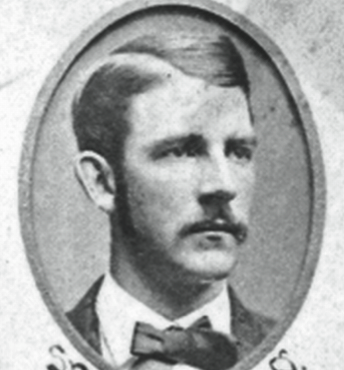September 6, 1873: Red Stockings offense erupts in 23-1 trouncing of Brooklyn Atlantics
 The Red Stockings were in third place with a record of 22-12. In retrospect, we see they were poised to take off and go 21-4 (with a tie) the rest of the way in the 1873 season, and capture first place. Brooklyn was 15-23. The Bostons hosted the Brooklyn Atlantics on Saturday afternoon, September 6, a day when “the weather was delightful and the expectation of a fine game was universal.”1 Around 1,500 to 2,000 spectators turned out for the contest. D.P. Demorest was the umpire; it was the last of only three games he umpired, two in 1872 and just this one in 1873.
The Red Stockings were in third place with a record of 22-12. In retrospect, we see they were poised to take off and go 21-4 (with a tie) the rest of the way in the 1873 season, and capture first place. Brooklyn was 15-23. The Bostons hosted the Brooklyn Atlantics on Saturday afternoon, September 6, a day when “the weather was delightful and the expectation of a fine game was universal.”1 Around 1,500 to 2,000 spectators turned out for the contest. D.P. Demorest was the umpire; it was the last of only three games he umpired, two in 1872 and just this one in 1873.
The visitors won the coin toss, and so Boston batted first, the game getting under way at 3:15. Neither team scored a run for the first two frames. “The third inning was hot work,” wrote the Boston Globe, “but by means of two errors by [third baseman and manager Bob] Ferguson and a bad drop by [catcher Tom] Barlow, the Bostons left the bat with a score of five runs.”2
The score was 6-0 after six innings, with a number of men left on base by both teams. Then Boston broke the game open, teeing off on 17-year-old Brooklyn pitcher Jim Britt.3 Boston sent 15 men to the plate and scored 12 runs. “The ball was sent in succession to every corner of the field, while the visitors, who fell into a corresponding state of demoralization, were tumbling over each other, muffing and throwing wildly in a manner which called forth the merriment of the spectators.”4 It was worse. Of the first nine men to come to bat, only one failed to reach base, and there were “several” two-base hits. “So loose was the fielding of the Atlantics,” continued the Globe, “that some of the Boston boys amused themselves by running at hap hazard from base to base, while the ball was being thrown before, after and around them, without any system, and with no effect.”5 The Red Stockings scored 12 runs. The only weak spot in the Boston offense was right fielder Bob Addy, the only player to go hitless. First baseman Jim O’Rourke had two base hits; everyone else in the lineup had three or four.
Boston added another two runs in the eighth and three in the ninth. Al Spalding allowed only three hits in the game, one each off the bats of Ferguson, Eddie Booth, and Herman Dehlman. The Atlantics scored one run, in the bottom of the eighth when Dehlman rounded the bases “on a miserable throw from [third baseman Harry] Schafer to O’Rourke, the ball being lost under the spectators’ seats.”6
The game was “a poor one,” wrote the Boston Traveler.7
It was a “signal defeat” for the Atlantics, only Schafer’s error “saving them from being ‘Chicagoed,’ ” or shut out. They were, quite evidently, “out batted and outfielded.”8 The number of errors tabulated differ from one newspaper to another. Brooklyn fielders committed 14 (or 15) errors; Boston committed five (or maybe four, or eight). The Brooklyn “in-fielders did poorly, almost without exception, while the out-fielders generally did well.”9 The Post credited Brooklyn third baseman Ferguson with “several fine pick-ups” and praised the play of Jack Remsen in center field.10
However many errors there may have been, the final score was not in dispute.
The two teams played again on Monday; Boston won 15-10. The Red Stockings finished the 1873 season with a very impressive .340 team batting average. Al Spalding’s pitching record was 41-14.
Notes
1 Boston Journal, September 8, 1873: 1.
2 Boston Globe, September 8, 1873: 5.
3 Britt finished the season with a 17-36 record.
4 Ibid.
5 Ibid.
6 Ibid.
7 Boston Traveler, September 8, 1873: 1.
8 Brooklyn Eagle, September 8, 1873: 4.
9 Boston Journal.
10 Boston Post, September 8, 1873: 3.
Additional Stats
Corrections? Additions?
If you can help us improve this game story, contact us.

